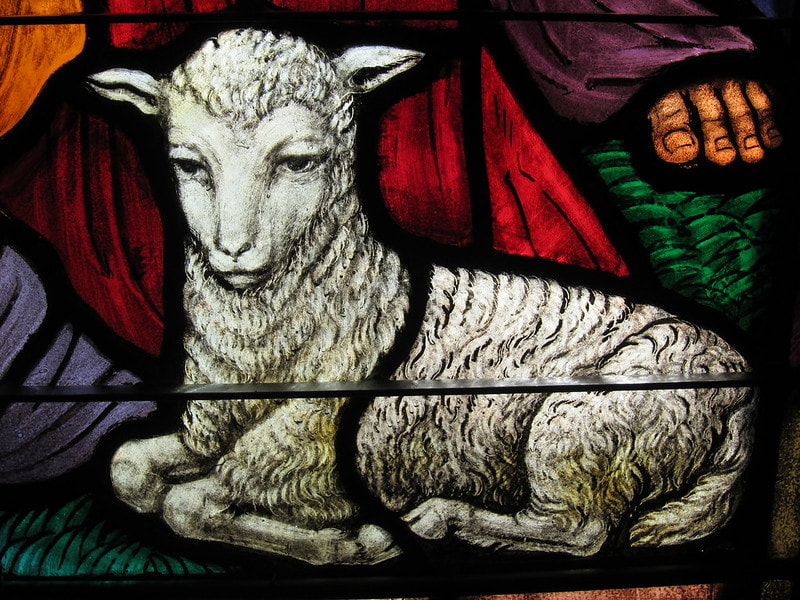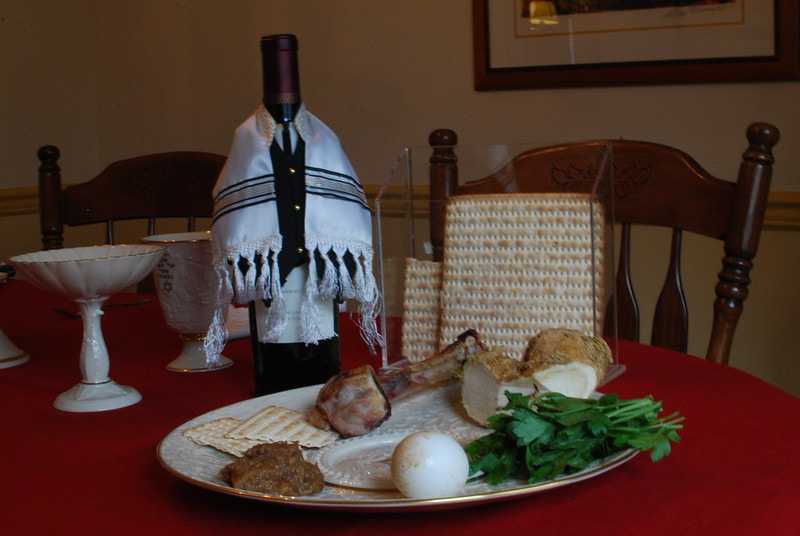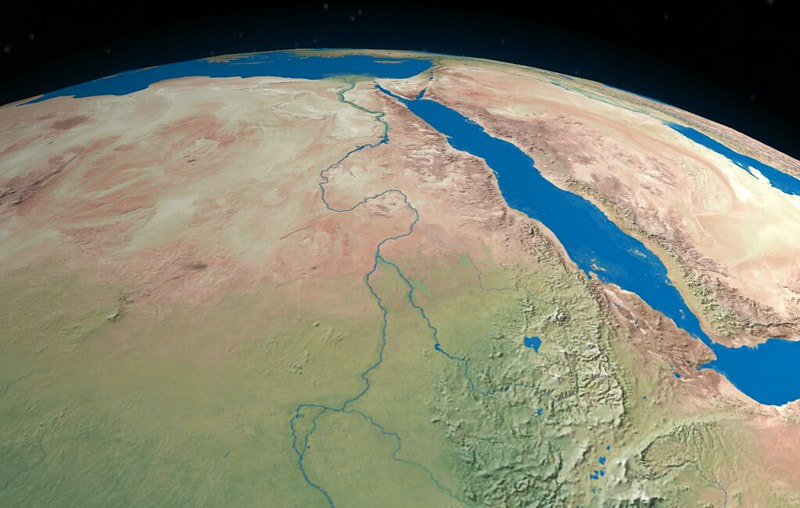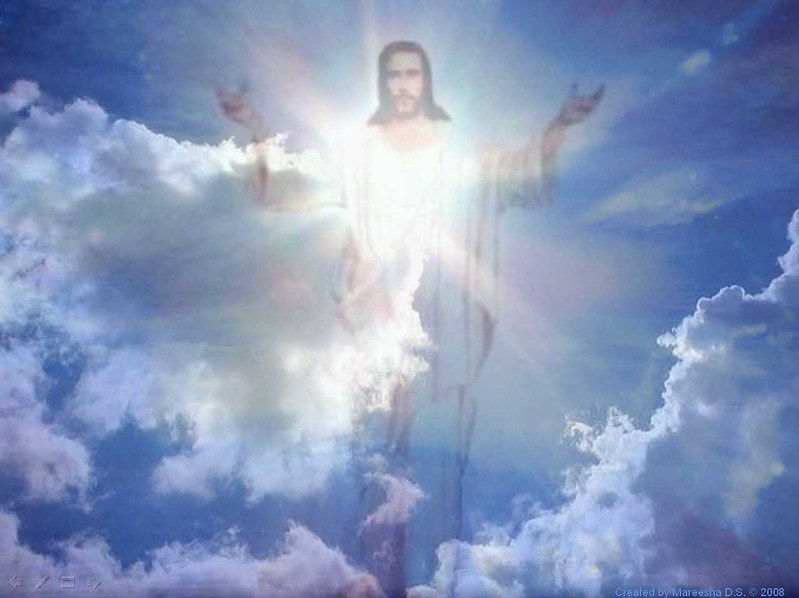|
A question is posed at the beginning of the song "Wonderful, Merciful Savior." "Who would have thought that a Lamb could rescue the souls of men?" But that is what was done by the Lamb of God! We see foreshadows of the Lamb of God throughout the Old Testament beginning in Genesis when Adam and Eve sinned. By eating the forbidden fruit their eyes were opened and "they realized that they were naked." (Genesis 3:7) Another way to say this is that they experienced shame, so much so that they tried to cover their nakedness with fig leaves. But man could not cover his own sin. God had to provide them with "garments of skin." (Genesis 3:21)
Specific instructions were given to the Israelites in Egypt when God was going to deliver them from bondage and death. "...On the 10th day of the month each man is to take a lamb for his family...The animals you choose must be year-old males without defect...Take care of them until the 14th day of the month when all the members of the community of Israel must slaughter them at twilight. Then they are to take some of the blood and put it on the sides and tops of the doorframes of the houses where they eat the lambs." (Genesis 12:3, 5-7) The blood of the lamb was the covering that was needed to protect the children of Israel from the plague of death. It was on Mt. Moriah that Abraham took his son, his only son, whom he loved, and offered him as a burnt offering at the request of God. (Genesis 22:2) At the moment he was about to slay him, God provided a ram for the sacrifice. The binding of Isaac is called "the Akedah" in Hebrew and the story is retold in synagogues across the world on Rosh Hashanah. In Isaiah 53 we read the foretelling of the substitutionary atoning sacrifice of the Messiah. Verse 7 compares him to the sacrificial lamb: "He was oppressed and afflicted, yet He did not open His mouth; He was led like a lamb to the slaughter, and as a sheep before its shearers is silent, so He did not open His mouth." When asked by the priests and Levites who he was, John the Baptist told them, "I am the voice of one calling in the wilderness, 'Make straight the way for the Lord.'" (John 1:23) John was the one who prepared the way for Jesus and identified Him so that all the world would know the call of God on His life. "Look, the Lamb of God, who takes away the sin of the world." (John 1:29) Those who practiced animal sacrifice so that those who violated the Mosaic law could approach God must have been shocked by the statement of John the Baptist. How could John compare Jesus to the sacrificial lambs? The Passover season is upon us. The Jewish people will be remembering how each Israelite household in Egypt brought a perfect lamb into their homes from Nisan 10 to 14. Imagine how each family must have become attached to their lamb as they lived with him, only to turn around and kill him as a sacrifice to protect them. Christians are remembering the triumphant entry of Jesus into Jerusalem this weekend. To fulfill what was spoken by the prophets, He entered riding on a colt of a donkey. Crowds followed Jesus shouting, "Hosanna to the Son of David!" (Matthew 21:9) Afterward, Jesus entered the temple where He would be questioned and scrutinized. For four days, "The Lamb of God" was examined. He was then chosen as the Sacrificial Lamb. It is the love of God that nailed Jesus to the Cross. He was the sacrifice that purchased our souls. He is our Redemption. The Lamb of God is described in Revelation 5:6, 9-10. "Then I saw a Lamb, looking as if it had been slain, standing at the center of the throne, encircled by the four living creatures and the elders...And they sang a new song, saying: 'You are worthy to take the scroll and to open its seals, because You were slain, and with Your blood You purchased for God persons from every tribe and language and people and nation. You have made them to be a kingdom and priests to serve our God, and they will reign on the earth." We are those that Jesus purchased for Father God. We are part of God's Kingdom and priests to serve Him. It is ordained that we shall reign in victory. How can we not praise Him? Yearly the Jews commemorate the time when God freed the Jewish people from slavery in Egypt. They tell the story at a Passover Seder which means "order." Today's Seder has changed from the original Passover meal. As families and friends gather together, they use a guide called the Haggadah which means "The Telling." To help us remember the events of the children of Israel in Egypt and on their way to cross into the Promised Land, the Seder uses symbols.
Many Christians do not realize that when Jesus broke bread and shared it and the wine with the disciples at the Last Supper, he used the same elements shared at the Passover feast. There is an interesting mystery concerning the matzah (bread with no leaven) that is used in the service. At the beginning of the Seder, the leader lifts up three pieces of matzah. Why three? Could it be that they represent the Trinity? (Father, Son and Holy Ghost) The matzah itself is striped and pierced like Jesus at the crucifixion. Think about this interesting part of the ceremony: The middle piece of matzah is removed and lifted up to be broken in half. This piece is called the "Afikomen," a Greek word meaning, "that which comes after." The larger piece of broken matzah is wrapped in a white linen napkin and hidden. So too, the body of Jesus was wrapped in white linen and hidden away in a tomb. At the end of the Seder the young ones search for the hidden matzah so they can bring it back to those at the table. The Seder cannot be completed without the Afikomen. When it is found it is unwrapped and passed around so that all may partake of it. Can we assume that the Afikomen represents Jesus? I think so! The Messiah, Jesus, is the One who must still come to His people. He comes to everyone. He is the one who who led His disciples in the Passover feast at the last supper before His death. "While they were eating, Jesus took bread, and when he had given thanks, he broke it and gave it to His disciples, saying, 'Take it; this is my body.' Then He took a cup, and when He had given thanks, he gave it to them, and they all drank from it. 'This is my blood of the covenant, which is poured out for many,' He said to them. " (Mark 14:22-24) Romans 11:25-26 gives us insight into God's plan to reveal Himself to all mankind. "...Israel has experienced a hardening in part until the full number of the Gentiles has come in, and in this way all Israel will be saved. As it is written, 'The deliverer will come from Zion; He will turn godlessness away from Jacob.'" None of us can be complete without our Messiah, Jesus. He is revealing Himself to many through signs, wonders, and miracles. Let us pray for the eyes of the Jewish people to be opened as they celebrate their Passover Seders next week. The Lord is not willing for anyone to perish. “For God so loved the world that He gave His one and only Son, that whoever believes in Him shall not perish but have eternal life." (John 3:16) At the sound of a familiar song, we can be transported to a special time and place. That happened to me this week as I listened to Marty Goetz play and sing "This is My Father's World." In my mind I was a 12-year-old girl at summer camp. Camp Sunnybrook was in a beautiful spot in the PA Poconos. Part of the camp program included vespers that would take place on a White Pine tree-covered peninsula that extended out into a small man-made lake. The floor of the peninsula was covered in a bed of aromatic pine needles. When the late afternoon sun was shining on the needles the smell was out of this world.
A group of campers would gather on the peninsula at the end of the day to listen to a devotional and sing songs of praise and worship. As I sat in the heavenly atmosphere, we sang "This is My Father's World.” After vespers were completed and everyone left, I stayed behind, because I was not ready to walk away from a holy moment. With deep gratitude and renewed commitment, I continued to sing the song, knowing the truth that our world was created and sustained and ruled by our Heavenly Father. Scripture is filled with verses that confirm that God is our Creator, Maker, and Sustainer. He is all that and more! Psalm 8:3-4 asks a question: “When I consider your heavens, the work of your fingers, the moon and the stars which you have set in place, what is mankind that you are mindful of them, human beings that you care for them?" Indeed, how blessed we are that the One who is ruling the world stops to care for us. Let's look at 1 Chronicles 29:10-13 where David praised the Lord in front of the whole assembly of Israel. "Praise be to You, Lord, the God of our father Israel, from everlasting to everlasting. Yours, Lord, is the greatness and the power and the glory and the majesty and the splendor for everything in heaven and earth is Yours. Yours, Lord, is the Kingdom; You are exalted as head of all. Wealth and honor come from You; You are the ruler of all things. In Your hands are strength and power to exalt and give strength to all. Now, our God, we give you thanks, and praise your glorious name." Amen! I want to share the words from "This is My Father's World" (Verses 1 and 3) with you, because they are comforting to me, especially when I consider the state of our world today. It is my hope that they also comfort you.
"The Earth is the Lord's and everything in it, the world, and all who live in it; for He founded it on the seas and established it on the water. Who may ascend the mountain of the Lord? Who may stand in His holy place? The one who has clean hands and a pure heart, who does not trust in an idol or swear by a false god. They will receive blessings from the Lord and vindication from God their Savior. Such is the generation of those who seek Him, who seek Your face, God of Jacob. Lift up your heads, you gates; be lifted up, you ancient doors, that the King of glory may come in. Who is the King of glory? The Lord strong and mighty, the Lord mighty in battle. Lift up your heads, you gates; lift them up, you ancient doors, that the King of glory may come in. Who is He, this King of glory? The Lord Almighty--He is the King of glory." Let the truth of this Psalm strengthen us and bring us peace. Remember that this is our Father's world! Ruth Heflin's book, Glory, is written to help us understand not only what it is but also how to experience it. Her vast service to the Lord took her to the nations where she shared the revelation that God gave to her. She was a song writer and pastor and was known for her ability to lead people into spontaneous worship. She explains that glory is the realm of eternity, the atmosphere of Heaven, and the revelation of the presence of God because He is Glory. Her ministry of praise on Mt. Zion was birthed after God spoke to her in the middle of the night. He said, "You sow to the heavens, and I will sow to the earth." After hearing this word from the Lord, Ruth realized that there is a progression that must take place for us to operate in the glory of God. She says, "Praise until the spirit of worship comes, worship until the glory comes. Then, stand in the glory!"
What does praise look like and what are its benefits? According to Ruth, praise is an instrument of harvest, celebration, warfare, and ascent. Praise to voice thanksgivings to God (Psalm 26:7), to declare triumph (Psalm 47:1), to sing a new song to Him (Psalm 98:1), and to shout with joy for His might (Psalm 118:15). We "enter His gates with thanksgiving and the courts with praise..." (Psalm 100:4) Psalm 45:1 declares that our "...tongue is the pen of a skillful writer." Just as God created the world with His breath, we must use our mouths to release the sound that sows to the heavens so that God sows back to the earth. Hosea talks about God's response to what we sow: "And the earth shall hear the corn, and wine, and the oil; and they shall hear Jezreel." (Hosea 2:22 - KJ) Jezreel means "God sows." These three symbols are of revival that leads to harvest. Ruth says, "You can stand in one place and minister to the Lord and affect revival to the ends of the earth." Praise is a form of celebration. Doesn't the frequent number of festivals on the Jewish calendar indicate God's love for celebration? In addition, our praises change the atmosphere, and they invite the presence of heaven to come down and make it uncomfortable for the enemy. Look at Psalm 8:2. "Through the praise of children and infants you have established a stronghold against your enemies, to silence the foe and the avenger." Praise is the best warfare strategy! And then, our praise leads us up. The temple in Jerusalem was built at the highest elevation. The Psalms of ascent were meant to be used as the people of God climbed the hill of the Lord. We must always look up as we praise. The transition from praise to worship starts when we begin to lose our sense of the surroundings. In this place we only have eyes for the King. We bow to His majesty. Ruth believes that it is the simplicity of the songs we sing that allows us to move into worship. We must focus on who He is, as the King of kings, the King of Majesty, and the One worthy to receive "glory and honor and power." (Revelation 4:11) According to Ruth our worship must begin at His feet and bring His majesty. Our worship experience is for us to know the Lord and to fall in love with Him. The final stage of worship is intimacy where we begin to know Jesus as our Bridegroom. He longs to hear our unique expressions of love. We should get to know Song of Solomon in the Bible as it teaches us how to confess our affections for the Lord. As we come into the secret place, the glory realm manifests. "If we have vibrant praise, then we'll have deep worship, and we'll have the fullness of the glory of God manifested," according to Ruth. She also says, "In the glory realm we are more conscious of His holiness. This is why the angels cry, 'Holy! Holy!'" All aspects of ministry become easier in the glory realm: prayer, healing, revelation. Once the glory has arrived, we must linger with the Lord, because He wants to fill us with the riches of His Kingdom. Just writing about the glory gives me a deeper desire to pursue it. We are meant for the glory realm. Let's not give up until we experience the glory that He promised as a result of our praise and worship! "Praise until the spirit of worship comes, worship until the glory comes. Then, stand in the glory!" |
Joan E. MathiasCategories
All
Archives
July 2024
|




 RSS Feed
RSS Feed